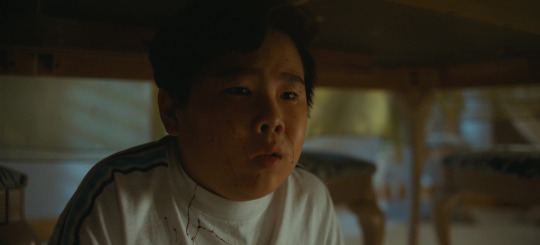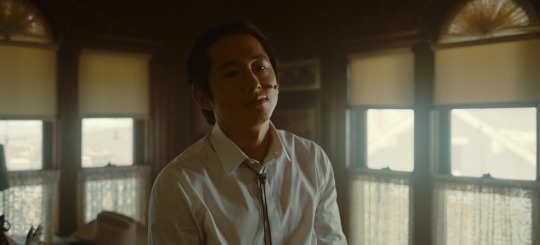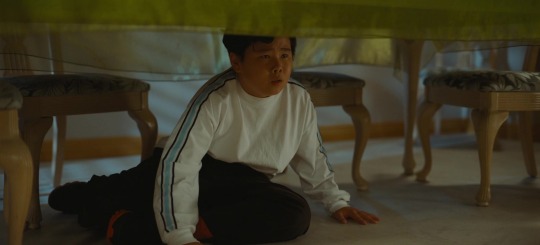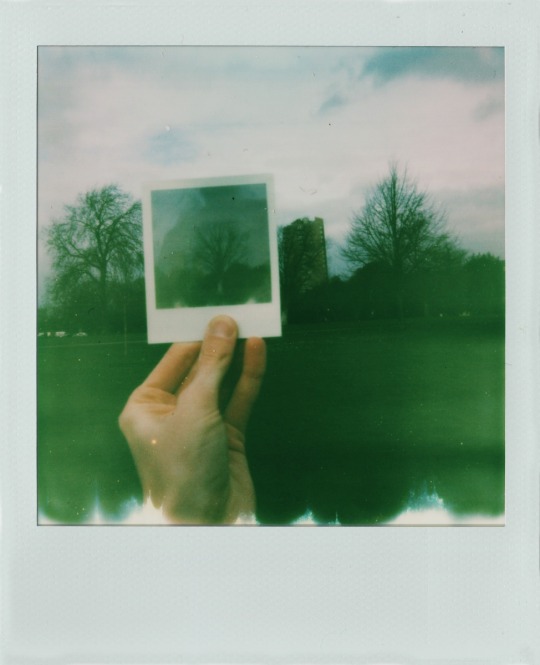#Teju Cole
Explore tagged Tumblr posts
Photo







NOPE (Jordan Peele) / personal essay / Blind Spot (Teju Cole) / The Writing of the Disaster (Maurice Blanchot)
#nope 2022#nope film#jordan peele#teju cole#jupe park#jupiter park#maurice blanchot#ricky park#gordy's home#steven yeun#blind spot#NOPE#threads
735 notes
·
View notes
Text

Everything feels alive, and looking at the trees there in their dozens, you suspect that they are about to rise into the air like a flock of birds.
-- Teju Cole
(Bistrița, Romania)
210 notes
·
View notes
Text
En medio de esa fuga sonora me acordaba de san Agustín asombrado ante san Ambrosio, quien parece que había descubierto una manera de leer sin pronunciar las palabras. La verdad, es muy extraño —se me ocurre ahora, como se me ocurrió entonces— que podamos comprender las palabras sin decirlas. Para Agustín, el peso y la vida interior de las frases se experimentaba mejor en voz alta, pero desde entonces nuestra idea de la lectura ha cambiado mucho. Hace demasiado tiempo que se nos enseña que la visión de un hombre hablando consigo mismo es un signo de excentricidad o de locura, hemos perdido totalmente el hábito de oír nuestras voces, como no sea en una conversación o protegida por una multitud vociferante. Pero un libro es una sugerencia de conversar: una persona le habla a otra, y en ese intercambio el sonido audible es o debería ser natural. Así que yo leía en voz alta, teniéndome como público, y daba voz a las palabras de otro.
_ Teju Cole, Ciudad abierta. Traducción de Marcelo Cohen. Editorial Acantilado 2012
13 notes
·
View notes
Text
“Sometime in my late 20s I realised – I mean, it’s obvious in retrospect – that what I wanted was the maximal complexity of thinking in the clearest language that would support that thinking. Being avant garde isn’t about being unreadable.” - Teju Cole
28 notes
·
View notes
Text
There is much sorrow, not only of the dramatic kind but also in the way that difficult economic circumstances wear people down, eroding them, preying on their weaknesses, until they do things that they themselves find hateful, until they are shadows of their best selves.
Every Day Is for the Thief by Teju Cole
7 notes
·
View notes
Text
In the West a love of the “authentic” means that art collectors prefer their African objects to be alienated so that only what has been extracted from its context becomes real. Better that the artist not be named, better that the artist be long dead. The dispossession of the object’s makers mystically confers monetary value to the object and the importance of the object is boosted by the story that can be told about its role in the history of modern European art.
Tremor, Teju Cole
3 notes
·
View notes
Text

Editors Note: The words above appear in a book called Human Archipelago which includes photos made by Fazal Sheikh accompanied by text provided by Teju Cole. I find them helpful in my active consideration of what my moral responsibilities are and in my commitment to be (or try to be) an agent of hope and healing in our sweet old world. When I say I find them helpful, I speak only for myself and in my personal capacity as a creature citizen. That said, I hope you find them helpful too.
[Thanks always to David Dark]
Human Archipelago--Online Edition
21 notes
·
View notes
Text
Presence; or Polaroid Ghosts (Part 1)
‘There is a spectre inside every photograph.’ – Deborah Levy, The Man Who Saw Everything There comes a point when trying to get a book off the ground (i.e. published) where you have to accept defeat. As will no doubt become an increasingly familiar scenario, judging from my recent experiences with British publishing at least, the projects that fail to find a home on paper will eventually be…

View On WordPress
#Adam Scovell#Andrei Tarkovsky#Book of Sand#Celluloid Wicker Man#Charles Jourdan#Gaston Bachelard#Guy Bourdin#jorge luis borges#Mise en Abyme#photography analysis#photography essays#polaroid#Polaroid analyiss#Polaroid analysis#Polaroid articles#Polaroid essays#Presence#Presence or polaroid ghosts#teju cole#Toshio Matsumoto#Wim Wenders
17 notes
·
View notes
Text
My friend, who seemed to have read my thoughts, said, You have to set yourself a challenge, and you must find a way to meet it exactly, whether it is a parachute, or a dive from a cliff, or sitting perfectly still for an hour, and you must accomplish it in a beautiful way, of course.
Open City by Teju Cole
10 notes
·
View notes
Text
He was a murderer, a slaveholder, a terror and a pest. But I don’t go to Caravaggio to be reminded of how good people are and certainly not because of how good he was. To the contrary: I seek him out for a certain kind of otherwise unbearable knowledge. Here was an artist who depicted fruit in its ripeness and at the moment it had begun to rot, an artist who painted flesh at its most delicately seductive and most grievously injured. When he showed suffering, he showed it so startlingly well because he was on both sides of it: He meted it out to others and received it in his own body. Caravaggio is long dead, as are his victims. What remains is the work, and I don’t have to love him to know that I need to know what he knows, the knowledge that hums, centuries later, on the surface of his paintings, knowledge of all the pain, loneliness, beauty, fear and awful vulnerability our bodies have in common.
Teju Cole, "In Dark Times, I Sought Out the Turmoil of Caravaggio's Paintings"
36 notes
·
View notes
Text
Pharmakon abounds with mystery. Resolutely indeterminate photos, mute landscapes, undecipherable graffiti, and the motif of travel to unnamed places all create a context in which even the most straightforward pictures are infused with ambiguity. In Cole’s universe, these are less acts of obfuscation than attempts to provoke questioning. What are we really seeing? How do we create meaning? How is a typical carte de visite image redefined by being placed between impenetrable pictures? Without signs, how are we to know where we are? Does it matter?
Cheryl Van Hooven at Photo-eye Blog. Pharmakon: Reviewed by Cheryl Van Hooven
PHARMAKON. Photographs and text by Teju Cole. MACK, London, 2024. English, 200 pp., 8½x11".
The link is to the photo-eye Bookstore lwhich has several other recent titles by Teju Cole offered, and a cool link to the publisher, Mack.
Years ago I stubled upon a blog by Teju Cole. Quite broadly the blog had to do with a return visit to Nigeria. Each post had a black and white photogher and a story. The stories were sometimes very moving and the look of the blog was was quite beautiful. I felt a bit sad when I wen tto look for it and the blog was gone, but moreso grateful that it had been and I hand seen. That blog served as a bsis for Cole's novel, Every Day is for the Thief.
The Wikipedia aticle for the philosophical concept of parmakon is quite interesting.
3 notes
·
View notes
Text
Books Read in June:
1). Postcards from Surfers (Helen Garner)
2). Dedications (Iran Sanadzadeh)
3). The Lagoon and Other Stories (Janet Frame)
4). Every Day Is for the Thief (Teju Cole)
5). The Questions That Matter Most: Reading, Writing, and the Exercise of Freedom (Jane Smiley)
6). The Dutch House (Ann Patchett)
7). Perfume: The Story of a Murderer (Patrick Süskind)
8). How Fiction Works (James Wood)
9). The Half Known Life: In Search of Paradise (Pico Iyer)
10). Best of Friends (Kamila Shamsie)
11). Adventures in Pen Land: One Writer’s Journey from Inklings to Ink (Marianne Gingher)
12). Dress Your Family in Corduroy and Denim (David Sedaris)
#my literary life#booklr#book list#adult booklr#helen garner#iran sanadzadeh#janet frame#teju cole#jane smiley#ann patchett#patrick süskind#james wood#pico iyer#kamila shamsie#marianne gingher#david sedaris#(had a sort of prickly conversation about how many books is too many books#when does devouring literature become something close to considering art consumable?#anyway. that’s what this month’s substack is about)#((if unclear: i was the prickly one because defensive))
9 notes
·
View notes
Text
«BLACK PAPER - Writing in a Dark Time» by TEJU COLE
I feel the sadness of the city, a sadness all the more powerful because everything around suggests that there is nothing to be sad about. «BLACK PAPER – Writing in a Dark Time» by TEJU COLE A new, beautifully disturbing essay collection by Teju Cole. If I am to highlight some of them … 1) “After Caravaggio”, a work of art in its own right. 2) “Gossamer World: On Santu Mofokeng”, a beautiful…

View On WordPress
7 notes
·
View notes
Text
Writing on the top white sheet would transfer the carbon from the black paper onto the bottom white sheet. Black transported the meaning. - Teju Cole
1 note
·
View note
Photo

Tremor: A Novel
By Teju Cole.
5 notes
·
View notes
Text
We experience life as a continuity, and only after it falls away, after it becomes the past, do we see its discontinuities. The past, if there is such a thing, is mostly empty space, great expanses of nothing, in which significant persons and events float
Open City by Teju Cole
5 notes
·
View notes